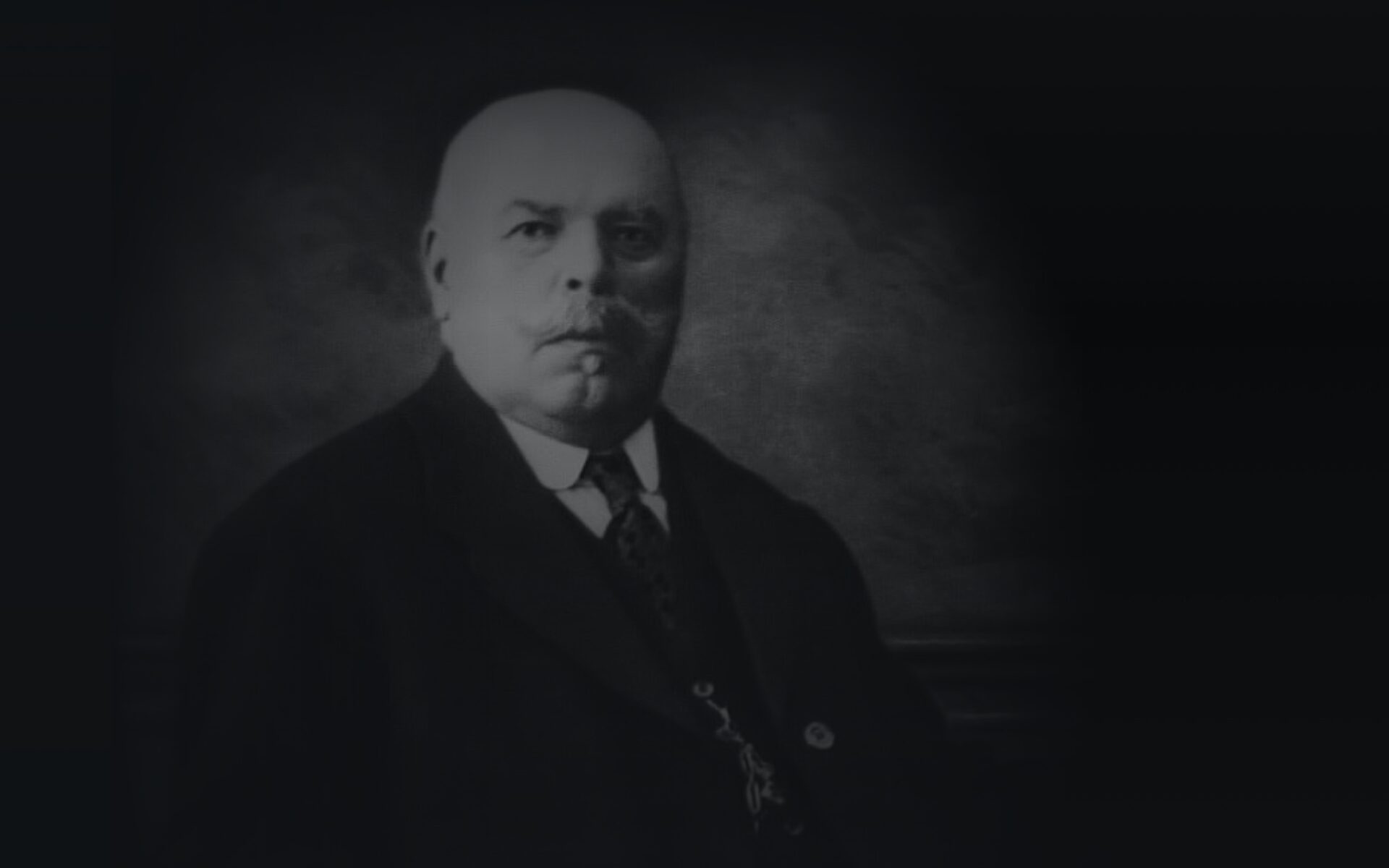
The future
is built on the past.
For more than 140 years, LASKA has known that “the future is built on the past” and has always relied on long-term thinking and action, without losing sight of its history in the process.

Seller
of sausage skins
Johann Laska establishes a small business producing sausage skins and ingredients for sausages in Obernberg am Inn, Austria. He later purchases a site opposite the slaughterhouse in Linz, where he constructs a company building for butcher’s supplies, along with a repair workshop for machinery. Before the First World War, Laska is selling machines all throughout Austria.

Second generation begins machine manufacturing
The first LASKA-built meat processing machines leave the plant. Under Max Laska’s leadership, in-house production ramps up. The Second World War slams the brakes on the company’s development. After the war ends, the business starts to rebuild.

LASKA machines in international demand
The Maschinenfabrik LASKA in Linz and trading companies Johann Laska u.Söhne in both Linz and Vienna are established as three independent companies. The first LASKA machines are exported in 1950. In the 1960s, the office and sales building in Linz is rebuilt, the production hall is expanded and the German sales company LASKA Fleischereimaschinen Augsburg is founded.
Manufacturing plant in Traun
Fritz Laska and his sons Herbert and Wilfried Laska order the construction of a modern, 8,000-m² production hall with sophisticated architecture in the town of Traun, near Linz. The 30,000-m² plot of land provides ample space for further expansion.

International sales network
Herbert and Wilfried Laska manage the company until 2010. Under their leadership, the international sales network continues to grow, increasing international demand for LASKA machines. The first machines with LASKA’s distinctive design are made in Traun. Their development and production focus on functionality, ergonomics and a consistent appearance.

Traun expansion
Production and warehouse facilities are renovated and expanded based on the latest knowledge on working processes and ergonomics. New premises for testing and development are added, Additional office spaces are acquired.

IFFA led by Wilfried and Herbert Laska
The IFFA 2004 marked an important milestone in the Laska story. With the launch of the LASKA Super Grinder (WWB 200 for frozen blocks) Wilfried and Herbert Laska opened up key markets that they had previously been unable to cover.

Production lines at the IFFA
Two production lines, for boiled sausage and minced meat, are exhibited at the IFFA 2013 trade fair in Frankfurt. Automation and raw material analysis are the key priority areas in the years that follow.

5-generation
family business
In December 2015, Maximilian Laska takes over as sales director at Laska, working alongside technical director Alexander Brinnich. The enterprise has been run by the family for more than 135 years.

Friedrich Laska celebrates his 100th birthday
Fritz Laska lived to see, and shape, more than two thirds of Laska’s 140-year history. His work had a huge impact on LASKA’s present success. With over 60 years’ service his professional expertise and personal character made him a role model for employees, families and people around him.
Perfection down to the last detail at IFFA
Automation and hygienic design were the focus at IFFA 2019, where LASKA presented an entire boiled sausage production line. The WWR 200, the first grinder in the world with Hygienic Design certification, was featured along with the WWB 200 Plus and the WWB 300 Plus grinders with the new hygienic design.

Maximilian Laska becomes sole managing director
After over 20 years on LASKA's executive management, the company bids its long-standing technical director Alexander Brinnich a fond farewell as he retires at the end of 2020. On 1 January 2021, Maximilian Laska takes up the position sole managing director at the head of the family business.
Why choose LASKA?
Because LASKA builds the best machines.
Which is why we’re market leader.
But also because LASKA is unlike any other brand.
Our DNA is unique.










